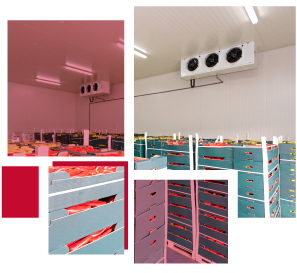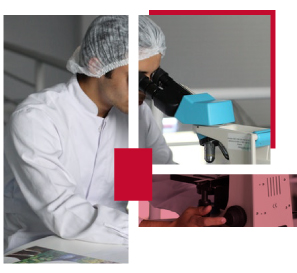INDUSTRIAL REFRIGERATION

FOOD INDUSTRY
_

PHARMACEUTICAL INDUSTRY
Industrial refrigeration focuses on the entire production process while commercial refrigeration refers to the final part of the cold chain.
At AKO we are specialists in cooling solutions based on 7 pillars:
- Efficiency.
- Energy saving.
- Caring for the environment.
- Guaranteeing optimal product conservation.
- Process automation.
- Strict regulatory compliance and personal safety.

Every year, 1 in 10 people is affected by an easily preventable foodborne disease, accounting for more than 420,000 deaths annually.
WHAT IS INDUSTRIAL REFRIGERATION?
At AKO we are pioneers in offering innovative solutions designed for industrial applications, pursuing these objectives:
- Reduce the cost of energy consumption of the property.
- Reduce downtime to near zero in food processing plants and warehousing facilities.
- Ensure the preservation of food that requires temperature and moisture control.
- Guaranteeing food safety.
- Minimize food waste.
- Be environmentally friendly.
- Remote management and monitoring of installations with cloud platforms that allow us to monitor, in real time, what is happening and to be able to anticipate possible breakdowns.
- Reduce refrigerant gas leaks.
- Guarantee the safety of people and regulatory compliance.

A refrigeration installation operating at 80% of its nominal gas load increases its electricity consumption by 15%.
SOME CONCERNS IN THE WORLD OF COMMERCIAL REFRIGERATION
Improving energy efficiency and increasing the useful life of refrigeration installations is key.
What do we achieve with an efficient management of all the elements that make up an industrial refrigeration installation?
- Reliability of the solutions.
- Low installation costs.
- Preventive maintenance for equipment
- Energy efficiency.
- Advanced, intelligent and predictive control of temperature and moisture.
- Development of innovative solutions in constant development thanks to the R&D&i department.
- Increased installation life.
- Reduce maintenance and operating expenses.

Up to 33% of perishable products suffer deterioration before being consumed due to inadequate storage conditions and ignorance of the state of the food.


